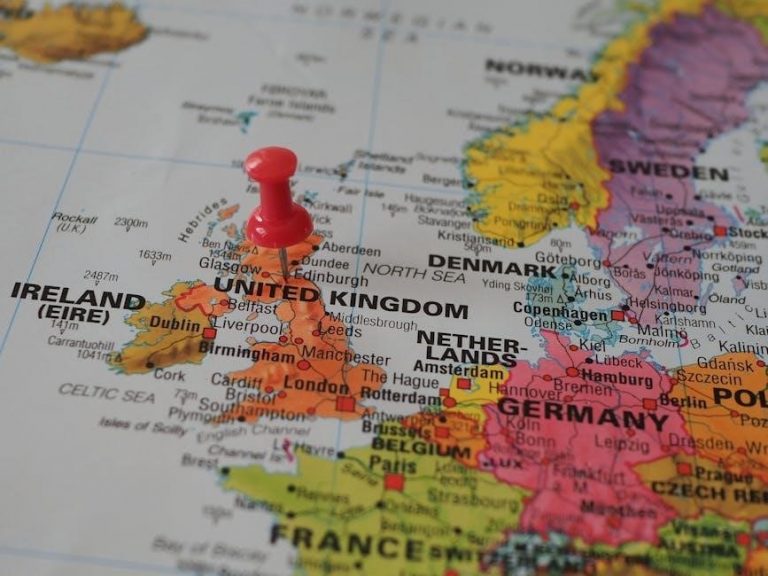Personal freedom is the ability to live life on your own terms‚ guided by self-awareness and intentional choices. It involves overcoming limitations‚ embracing empowerment‚ and breaking free from societal or internal constraints to live authentically. This guide explores practical steps to achieve freedom‚ fostering a mindset of liberation and fulfillment.
Defining Freedom
Freedom is a deeply personal and dynamic concept‚ often defined by the ability to make choices aligned with one’s values and aspirations. It involves breaking free from external and internal constraints‚ enabling individuals to live authentically and without undue restriction. Freedom can manifest in various forms‚ such as financial independence‚ emotional liberation‚ or the capacity to pursue one’s passions without fear of judgment. At its core‚ freedom is about empowerment and the ability to create a life that reflects one’s true self.
Defining freedom requires self-awareness and clarity about what it means to you personally. It’s not just the absence of limitations but the presence of opportunities to grow‚ express yourself‚ and thrive. Freedom is a journey‚ not a destination‚ and its meaning evolves as you do.
Importance of Freedom
Freedom is essential for personal growth‚ empowerment‚ and overall well-being. It allows individuals to make choices that align with their values‚ fostering self-expression and authenticity. Without freedom‚ creativity‚ innovation‚ and progress are stifled. Freedom empowers people to take control of their lives‚ pursue their passions‚ and achieve their full potential. It also promotes mental and emotional health by reducing stress and anxiety associated with confinement or oppression. True freedom enables individuals to live responsibly‚ embracing opportunities while respecting the rights of others. By valuing freedom‚ we cultivate a society that thrives on diversity‚ resilience‚ and collective prosperity. Ultimately‚ freedom is the foundation for a fulfilling and purposeful life.

Self-Awareness and Mindset
Self-awareness and mindset are crucial for personal freedom. Understanding your beliefs‚ values‚ and emotions helps break free from limitations and cultivate a mindset that embraces freedom and authenticity.
Understanding Self-Awareness
Self-awareness is the foundation of personal freedom‚ enabling individuals to recognize their thoughts‚ emotions‚ and behaviors. It involves understanding your identity‚ values‚ and beliefs‚ which shape your decisions and actions. Developing self-awareness allows you to identify limiting patterns and break free from conditioned responses. This process requires introspection‚ honesty‚ and a willingness to confront your inner truths. By cultivating self-awareness‚ you gain clarity on what truly matters to you‚ empowering you to align your choices with your authentic self. This awareness is not a destination but a continuous journey‚ essential for achieving freedom from internal constraints and living a purposeful life.
Adopting a Freedom-Oriented Mindset
A freedom-oriented mindset is rooted in empowerment‚ self-trust‚ and the belief that true freedom begins within. It involves rejecting a permission-based mentality and embracing autonomy. This mindset encourages individuals to question societal norms and pursue their values without fear of judgment. By focusing on what truly matters‚ you break free from external expectations and align your actions with personal goals. A freedom-oriented mindset fosters resilience‚ adaptability‚ and the courage to make choices that reflect your authentic self. It’s about living intentionally‚ taking ownership of decisions‚ and viewing challenges as opportunities for growth. This mindset is the cornerstone of personal freedom‚ enabling you to navigate life with purpose and confidence.

Overcoming Limitations
Overcoming limitations requires perseverance‚ self-awareness‚ and a willingness to break free from internal and external barriers. It involves recognizing constraints and developing strategies to transcend them‚ enabling true freedom and empowerment through intentional living.
Internal Obstacles
Internal obstacles‚ such as fear‚ self-doubt‚ and limiting beliefs‚ often hinder personal freedom. These mental barriers can prevent individuals from pursuing their goals and desires. Recognizing these internal challenges is the first step toward overcoming them. Techniques like mindfulness‚ self-reflection‚ and reframing negative thoughts can help individuals break free from these constraints. Additionally‚ developing a growth mindset and embracing change can empower individuals to move beyond internal limitations. By addressing these obstacles‚ individuals can unlock their full potential and progress toward achieving their vision of personal freedom. Overcoming internal obstacles is a crucial step in the journey to living an authentic and fulfilling life.
External Barriers
External barriers‚ such as societal expectations‚ financial constraints‚ and relational pressures‚ can significantly limit personal freedom. These obstacles often stem from external systems or environments that impose restrictions on individual choices. For instance‚ financial debt or lack of resources can hinder autonomy‚ while societal norms or family expectations may dictate how one should live their life. Additionally‚ responsibilities like caregiving or work commitments can create external limitations. To overcome these barriers‚ individuals must develop strategies to navigate or redefine these constraints. This may involve financial planning‚ setting boundaries‚ or reevaluating priorities to align with personal values. Addressing external barriers requires a balance of practical action and intentional decision-making to reclaim freedom and autonomy in life. By doing so‚ individuals can reduce the impact of external limitations and move closer to their vision of personal freedom.

Setting Boundaries
Setting boundaries is essential for protecting your time‚ emotional well-being‚ and relationships. It involves creating healthy limits‚ learning to say no‚ and prioritizing self-care without guilt or overcommitment.

Creating Healthy Boundaries
Creating healthy boundaries is a cornerstone of personal freedom‚ enabling you to protect your time‚ energy‚ and emotional well-being. Start by identifying your limits and communicating them clearly to others. Prioritize self-care and learn to say no without guilt. Boundaries foster respect and balance in relationships‚ allowing you to maintain autonomy while nurturing connections. Be consistent in enforcing these limits‚ as consistency reinforces their importance. Healthy boundaries also involve respecting others’ limits‚ creating a mutually supportive environment. By setting clear guidelines‚ you empower yourself to live authentically and reduce unnecessary stress‚ fostering a life of freedom and harmony.
Learning to Say No
Learning to say no is a powerful act of self-preservation and empowerment‚ essential for safeguarding your time‚ energy‚ and priorities. It allows you to set boundaries and protect your personal freedom. Many struggle with guilt or fear of disappointing others‚ but saying no is not about being selfish—it’s about being intentional with your resources. Start by identifying your non-negotiables and practicing firm yet polite responses. Saying no to what doesn’t align with your values creates space for what truly matters. Over time‚ this practice builds confidence and clarity‚ helping you live a life of purpose and authenticity. Remember‚ saying no to others means saying yes to yourself and your freedom.
Financial Freedom
Financial freedom is achieving stability through careful planning‚ budgeting‚ and wise investments‚ enabling you to live life on your terms without debt or financial stress.
Understanding Financial Freedom
Financial freedom is a state where individuals have sufficient wealth to cover living expenses without being burdened by debt or the need for active income. It involves strategic planning‚ budgeting‚ and wise investments to build sustainable wealth. Achieving financial freedom requires discipline‚ patience‚ and a clear understanding of personal financial goals. By living within means‚ reducing debt‚ and creating multiple income streams‚ individuals can break free from financial stress. It also involves developing healthy money habits‚ such as saving‚ investing‚ and avoiding unnecessary expenses. Ultimately‚ financial freedom empowers individuals to live life on their terms‚ pursuing passions and creating a secure future. It’s about more than wealth—it’s about freedom of choice and peace of mind.
Budgeting and Saving
Budgeting and saving are foundational steps toward achieving financial freedom. A budget helps track income and expenses‚ ensuring resources are allocated wisely. Prioritizing needs over wants is essential to avoid unnecessary spending. Saving requires discipline‚ with strategies like setting aside a fixed percentage of income or automating savings. Emergency funds and long-term investments are crucial for stability and growth. By consistently applying these practices‚ individuals can build financial security and reduce stress. Budgeting and saving not only create a path to financial freedom but also foster a mindset of responsibility and control over one’s financial future. These habits empower individuals to make intentional decisions that align with their goals and values.

Health and Well-being
Prioritizing health and well-being is essential for personal freedom‚ as it provides the energy and clarity needed to pursue life goals. Regular exercise‚ balanced nutrition‚ and adequate sleep are vital for maintaining physical and mental vitality. By taking care of your body and mind‚ you cultivate resilience and reduce stress‚ enabling you to live life authentically and make intentional decisions that align with your values and aspirations.
Prioritizing Health
Prioritizing health is a cornerstone of personal freedom‚ as it empowers you to live life with vitality and purpose. Regular exercise‚ balanced nutrition‚ and sufficient sleep are essential for maintaining physical and mental well-being. A healthy body and mind provide the energy and clarity needed to pursue your goals and make intentional decisions. Neglecting health can lead to limitations that hinder your freedom‚ such as chronic fatigue or mental fog. By investing in self-care practices‚ such as meditation and stress management‚ you cultivate resilience and reduce the risk of burnout. Taking charge of your health allows you to embrace life fully‚ enabling you to pursue your passions and live authentically without being held back by physical or mental constraints.
Exercise and Nutrition
Exercise and nutrition are vital components of personal freedom‚ as they directly impact your physical and mental well-being. Regular physical activity boosts energy levels‚ enhances mental clarity‚ and reduces stress‚ enabling you to tackle life’s challenges with confidence. A balanced diet provides the fuel your body needs to function optimally‚ supporting long-term health and vitality. By prioritizing exercise and nutrition‚ you create a strong foundation for pursuing your goals and living life on your own terms. Consistent habits in these areas empower you to maintain independence and resilience‚ ensuring that your body and mind are equipped to embrace freedom fully. This proactive approach to health fosters a sense of control and empowerment‚ essential for achieving personal freedom.

Personal Growth
Personal growth is essential for achieving freedom‚ as it fosters self-awareness‚ resilience‚ and the ability to pursue meaningful goals. It empowers individuals to evolve and thrive.
Setting Personal Goals
Setting personal goals is a cornerstone of personal freedom‚ enabling individuals to align their actions with their values and aspirations. By defining clear objectives‚ one can create a roadmap for achieving fulfillment. Goals should be specific‚ measurable‚ and meaningful‚ ensuring they resonate with one’s purpose. Prioritizing these objectives helps maintain focus and direction. Breaking down larger goals into smaller‚ manageable steps fosters progress and builds confidence. Regularly tracking and reflecting on achievements ensures accountability and motivation. Embracing flexibility allows for adjustments as circumstances evolve. Ultimately‚ setting personal goals empowers individuals to take control of their journey‚ fostering growth and freedom in pursuit of a purposeful life.

Lifelong Learning
Lifelong learning is a vital component of personal freedom‚ empowering individuals to continuously grow and adapt in an ever-changing world. By embracing curiosity and a growth mindset‚ one can expand knowledge‚ skills‚ and perspectives‚ fostering independence and resilience. Learning opportunities are abundant‚ ranging from formal education to self-directed exploration. Staying informed about personal finance‚ health‚ and self-improvement enables informed decision-making. Through books‚ courses‚ and experiences‚ individuals can break free from limiting beliefs and acquire tools for personal liberation. Lifelong learning not only enriches life but also provides the wisdom and adaptability needed to navigate challenges and seize opportunities‚ ensuring lasting freedom and fulfillment.

Building Relationships
Building Relationships is crucial for personal freedom‚ fostering support‚ connection‚ and mutual growth. Nurturing relationships with like-minded individuals enhances emotional well-being and provides a network of encouragement‚ empowering individuals to thrive and maintain their independence while sharing meaningful bonds.
Nurturing Supportive Relationships
Nurturing supportive relationships is essential for personal freedom‚ as they provide emotional strength‚ encouragement‚ and a sense of belonging. Surrounding yourself with people who understand and respect your values fosters trust and collaboration. Healthy relationships thrive on open communication‚ empathy‚ and mutual respect. Setting boundaries ensures both parties feel valued and heard. Engaging in activities that promote shared growth and connection strengthens these bonds. Supportive relationships empower you to stay true to yourself while offering a network of encouragement. By cultivating meaningful connections‚ you create a foundation of love and trust that enhances your journey toward personal freedom and fulfillment; These relationships are a cornerstone of a balanced and liberated life.
Effective Communication
Effective communication is a cornerstone of personal freedom‚ enabling you to express your needs‚ desires‚ and boundaries clearly. It fosters understanding and respect in relationships‚ allowing you to navigate conflicts with ease. Active listening‚ clarity in speech‚ and empathy are key elements of effective communication. By articulating your thoughts and feelings honestly‚ you empower yourself to connect deeply with others. Non-verbal cues‚ such as body language and tone‚ reinforce your message. Mastering communication helps you build trust‚ resolve disagreements‚ and maintain healthy connections. When you communicate effectively‚ you assert your freedom to be heard and understood‚ fostering a life of authenticity and mutual respect. This skill is vital for setting boundaries and living on your own terms.

Staying committed to your values and aspirations ensures lasting freedom. Embrace lifelong growth and remain open to new opportunities‚ shaping a future where true freedom thrives.
Staying Committed
Staying committed to personal freedom requires consistent effort and self-discipline. It involves setting clear goals and maintaining a mindset focused on growth and resilience. By prioritizing actions that align with your values‚ you can overcome challenges and stay on track. Endurance and responsibility are key‚ as freedom is not a one-time achievement but a continuous journey. Regularly assessing your progress and adapting to changes ensures long-term success. Remember‚ true freedom is not just about external circumstances but also about internal liberation. Stay grounded‚ embrace accountability‚ and keep nurturing your vision for a life of autonomy and fulfillment.
The Future of Freedom
The future of freedom lies in embracing continuous growth and adaptability. As societal norms and technologies evolve‚ personal freedom will require proactive planning and resilience. Staying informed about economic trends and personal finance empowers individuals to make informed decisions. Achieving financial independence‚ such as retiring early‚ becomes more attainable with disciplined saving and strategic investments. By fostering a mindset of responsibility and endurance‚ one can navigate future challenges while maintaining autonomy. True freedom is not just a destination but a journey of constant learning and adaptation. Embrace the future with a focus on health‚ wealth‚ and personal values to ensure a life of fulfillment and independence.




